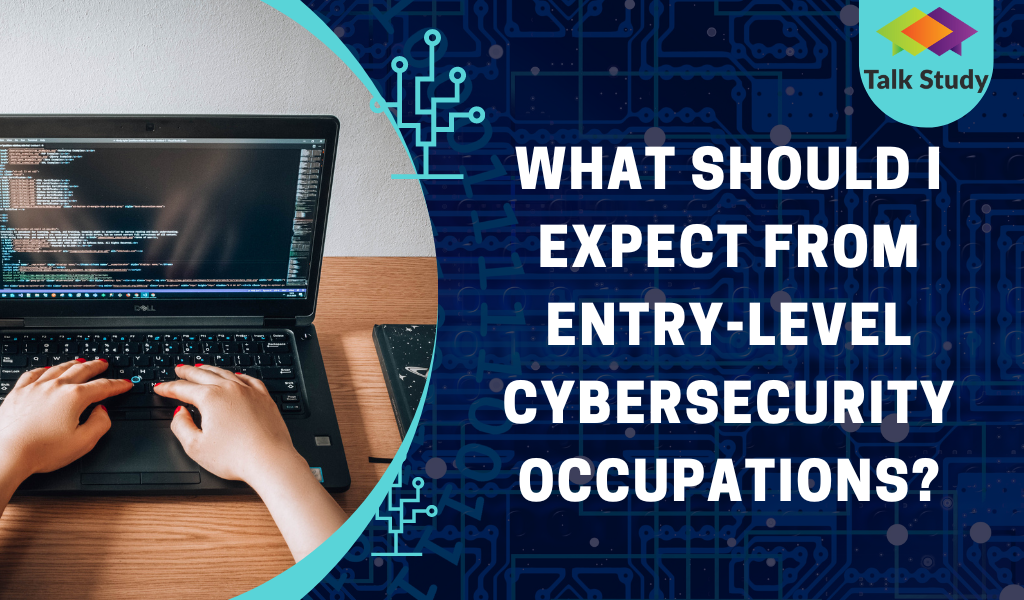Due to the increasing threat of cybercrime, there will be a growth in demand positions in cyber security. It is one of the most rapidly expanding fields this year, so companies are figuring out how to reduce expenses while still maintaining and improving their infrastructure, which means a constant demand for qualified workers. There are various entry-level positions in the field of cyber security that can lead to more advanced jobs as you gain expertise.
By 2022, there will be 1.8 million open positions due to a lack of qualified cyber security professionals, and the field is expanding three times as quickly as other information technology vocations. The digital infrastructure of companies, institutions, charitable organizations, and even the government is at risk due to a lack of competent personnel.
It follows that now is the ideal time to make a name for yourself in a developing and changing sector. Artificial intelligence, voice and image recognition, data analytics, biometrics, and mobility are all part of cyber security. Every size business and every type of sector must take precautions against data leaks and hackers.
Future cybersecurity workers will need a broad range of skills. Five “feeder roles” are required for the majority of entry-level jobs, according to Cyberseek, a company that provides information about the cyber security job market:
- Networking
- Software design
- Engineering systems
- Analysis of finances and risks
- Security information
So-called soft skills, like critical thinking and effective communication, are not on the list yet essential to cyber security success. Cyber security professionals used to only stare down at their screens, but those days are long gone. Most entry-level jobs include interacting with people from all areas of a company or organization, including non-technical staff.
A person in cyber security has numerous hats to wear. They question the current quo, use analytical techniques to address issues, protect the information, and seek advice from others to comprehend and address issues.
Job Categories for Cyber Security Beginners
Don’t let the variety of skills overwhelm you. Being a master of all trades is not expected of you when you first start in cyber security. If you’re seeking a starting point, Computer Science Master’s Degree gives a helpful choice chart that compares your preferences to likely employment.
Finding entry-level employment positions in the still-evolving and young sector of cyber security can at times be challenging. The National Institute for Cybersecurity Education recommends these words for cyber security workers’ résumé: operating, maintaining, managing, governing, protecting, and defending.
Here are some jobs that people who are new to the field common take:
- Information and Security Analyst. It is one of the jobs listed most commonly for entry-level cyber security positions because the U.S. Bureau of Labor Statistics records this career path. Information and security analysts are responsible for planning, implementing, updating, and monitoring security procedures that safeguard computer networks and information.
- Junior Penetration Tester. This job is a “good hacker” type of profession where testers actively attempt to circumvent a company’s security measures, assess its successful defense systems, and report any weaknesses they discover. Networks, web, and mobile applications are examples of specializations.
- Network and Computer Systems Administrator. This position essentially involves maintaining a network operational. It frequently entails duties including keeping track of access records, putting in place and validating network-based backups, adopting security measures and spotting suspicious activity.
The cybercrime risk is a continuous reality as thieves have access to ever-sophisticated tools. Employers are looking for personnel who can help them manage risks, handle data responsibly, and explain security requirements to managing directors and other staff members.
If you want to break into the world of cyber security, there are numerous entry-level jobs to try out. Just be sure that the job you want will let you get some real hands-on experience working in a cyber security setting. And be prepared for a long, challenging entry-level period, but once you start learning the ropes, you’ll probably love it.






Recent Comments